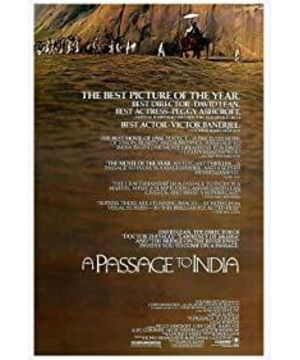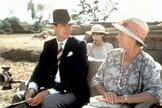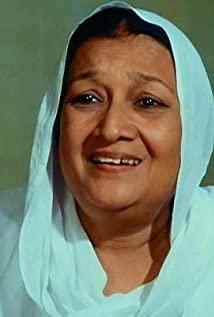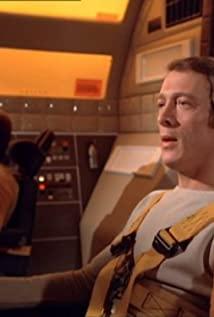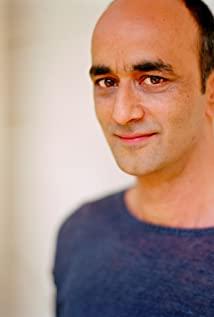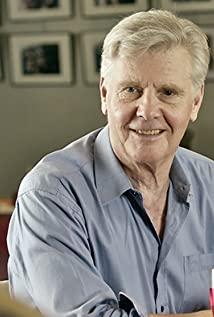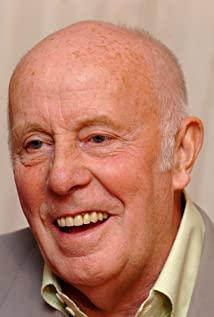I admire David Lean's works very much. The first thing I came into contact with was his final work, Journey to India. Although I couldn't tell when I was watching it at the time, it was adapted from E•M • The film of Foster's novel, with its unique narrative style, fascinating exotic scenery, strong humanistic feelings reflected in the film, as well as the superb performances of the actors, deeply attracted me when I was young. Master He looks at the British colonial rule of India from the perspective of the British with a serious attitude, explores the differences between Eastern and Western cultures, and highlights the inability to communicate between colonial India and the United Kingdom. Looking at this film now, I still can't help but reflect the cultural conflict for the detailed and grand scenes reflected in the whole film and the events in the film, so I can't help but revisit it in detail.
The film is set in an Indian city, and tells the story of the magistrate's mother and fiancee, two traditional British aristocratic women, Mrs. Moore and Arad to India to see him, hoping to use this journey to understand this mysterious land of India, so as to develop vision of life. After arriving, I found that the local racial discrimination was very serious, and everything was not what I thought. Fortunately, they met the enthusiastic Dr. Azismund and asked to lead them to visit the mysterious Malabar cave. In the dark cave, Arad felt insulted by someone in a trance, and suddenly escaped from the cave in a panic. Causing disputes to completely reverse the meaning of this pleasant journey. Let the Indian doctor Azis suffer unjust injustice. Will their skin color be the key to an interracial struggle? The film has a profound and subtle meaning, a slack performance, a tense narrative, and a rich exotic atmosphere. According to the data, David Lean has only made 16 films in over 40 years, but he has been nominated for Oscar 56 times and won a total of 27 gold awards. He himself won the Best Director Award seven times. Nominated, won twice, known as the dean of the British film industry.
David Lean's achievements in the classical narrative tradition of cinema have so far been unrivaled. The performances he controls are expressive but not original, and the films he expresses are profound but touching. He wrote great humanism with gentle but surging dramatic techniques, he preached battle, preached liberation, preached love, and preached reconciliation. He is a visualised Dickens. David Lean has won the title of "Director's Director" for his film's double high in literary and visual arts. Meticulous: Lean's work is produced to a very high standard in every aspect. His professionalism is exemplary. The most impressive is the editing, composition and soundtrack. In terms of editing, it not only pays attention to the coincidence of the picture curve and the character's movement situation, but also Lean's consistent Hook Up - the human scene of the latter scene and the former scene, the movement process will not be affected by the camera position. changes are different. This makes Lean's works particularly sophisticated, and the narrative process is extremely smooth. Lean's rigorous work attitude and method are quite similar to Hitchcock's, especially the method of writing the script, which can even be confusing. Lean could spend six years working on a script while doing nothing else.
Imagery: For composition, Lean often uses his signature deep focal length lenses, extreme long shots. The contrast between people and scenery is amazing. The whole picture looks powerful and majestic. This not only shows the wonders of nature, but also the wonders of the film industry. In the era of blockbuster films, David Lean often used field shooting because of his outstanding photographic composition. This makes his films not only have a visual sense of reality that is roughly in line with the background of the story, but also endows the film with a unique grandeur. For example, "Lawrence of Arabia" was shot in the deserts of Jordan and Morocco, and "Journey to India" was shot in the Maraba cave in India.
Blockbuster: And the length of his film has reached 2-3 hours to match the visual scale. Watching his films can always feel a sense of convincing. The pinnacle of which is "Doctor Zhivago". This work more comprehensively gathers Lean's artistic techniques, and his consistent humanistic views are also more cohesively reflected in this film.
Train: It is worth mentioning that in his works, he has given special enthusiasm to the scenes of expressing trains, and has become a unique cultural image by showing different meanings in different films.
Music: The beautiful soundtrack is also an important feature of David Lean's films. In a movie, the music should first have one or more themed theme music, character music and background music. This theme should represent the theme of the entire film and should match the epic style of the film. The theme music of "Lawrence of Arabia" and "Doctor Zhivago" is now the repertoire of many symphony orchestras. Among them, the "March of Colonel Porgy" whistled by prisoners of war in "The Bridge on the River Kwai", and the "Song of Nora" in "Doctor Zhivago" are all well-known songs.
David Lean is the dean of British cinema. Not only did his work shine at the top of the artistic pyramid, but it was also a huge commercial success—whether it be war films, historical films, or romanticized legends, garnering hundreds of millions of viewers.
Foster, a well-known writer, published five novels in total, but the last "Journey to India" was the first to be put on the screen. In 1984, it was directed by the great director David Lean. Although Foster had a last word against anyone adapting any of his works, no one seemed to respect his wishes, and five of his six novels were adapted into films.
The novel presents the insurmountable gulf between the two peoples of Britain and its colony of India, full of poignant irony, beautiful lyricism, profound symbolism and philosophical foresight. It is the last successful traditional novel of the British 20th century.
In 1960, after watching Sansa Rami Rono's adaptation of "A Trip to India" of the same name, E.M. Foster, then over 80, took to the stage tremblingly, expressing My love for the show: "What a great actor," Foster said, "What a blessing to be here to watch them perform! It's between a man and two women. I've seen too many stories of 'people', but they fail to reflect the complexity of life..." This is not a simple discussion about the "opposition of Eastern and Western civilizations", but an expression of "the predicament of human existence in the universe."
If he hadn't died in 1970, Foster might have expressed the same joy at David Lean's work, which shows the contradictions and complexities of human nature he wanted to convey.
View more about A Passage to India reviews


